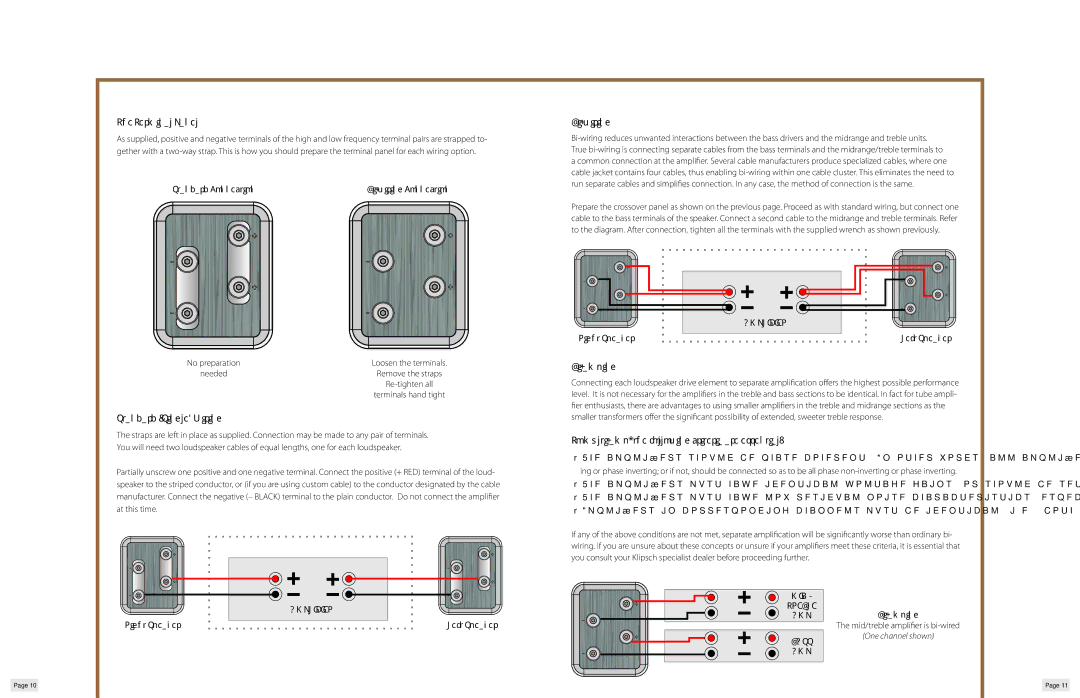P-17B, P-27C, P-38F, P-27S, P-37F specifications
Klipsch, renowned for its commitment to audio excellence, offers a range of high-performance speakers that cater to audiophiles and cinephiles alike. Among these, the P-17B, P-38F, P-37F, P-27C, and P-27S stand out, each designed with unique features and cutting-edge technologies.The Klipsch P-17B is a compact bookshelf speaker that packs a punch. With its Tractrix Horn-loaded tweeter, it delivers crisp and detailed high frequencies, making it a perfect choice for music lovers. Its 5.25-inch woofer provides deep bass response, ensuring that every note is heard. The speaker's minimalist design, combined with premium materials, ensures it blends seamlessly into any setting.
Moving up, the P-38F is a powerful floorstanding speaker that features dual 8-inch woofers, delivering enhanced bass performance and dynamic range. The P-38F utilizes Klipsch’s exclusive LTS tweeter, which minimizes distortion and ensures clear, detailed sound reproduction. Additionally, the Tractrix port design reduces turbulence, allowing for tight and accurate bass responses, making it ideal for home theater setups.
The P-37F also belongs to the floorstanding category, offering a slightly different sound profile. Its three-way design incorporates a 6.5-inch midrange driver for improved vocal clarity and a seamless transition between the highs and lows. The combination of dual 8-inch woofers and a Tractrix-loaded tweeter results in a wide soundstage and impressive imaging, making it an excellent choice for both music and movies.
For center channel performance, the P-27C is a standout. It features dual 5.25-inch woofers, providing powerful dialogue intelligibility and clarity in movie soundtracks. The Tractrix Horn technology enhances high-frequency performance, ensuring speech remains clear and engaging, which is crucial for an immersive home theater experience.
Lastly, the P-27S serves as a satellite speaker ideal for surround sound setups. Its compact design, featuring a 4-inch woofer and a Tractrix Horn tweeter, delivers remarkable sound quality without taking up much space. Perfect for mounting on walls or placing on shelves, the P-27S completes a multi-channel system with rich, detailed audio across all frequencies.
Overall, Klipsch's P series speakers, including the P-17B, P-38F, P-37F, P-27C, and P-27S, combine innovative technologies and aesthetic design to create a rich audio experience tailored for any environment, making them an excellent choice for anyone looking to elevate their sound.

